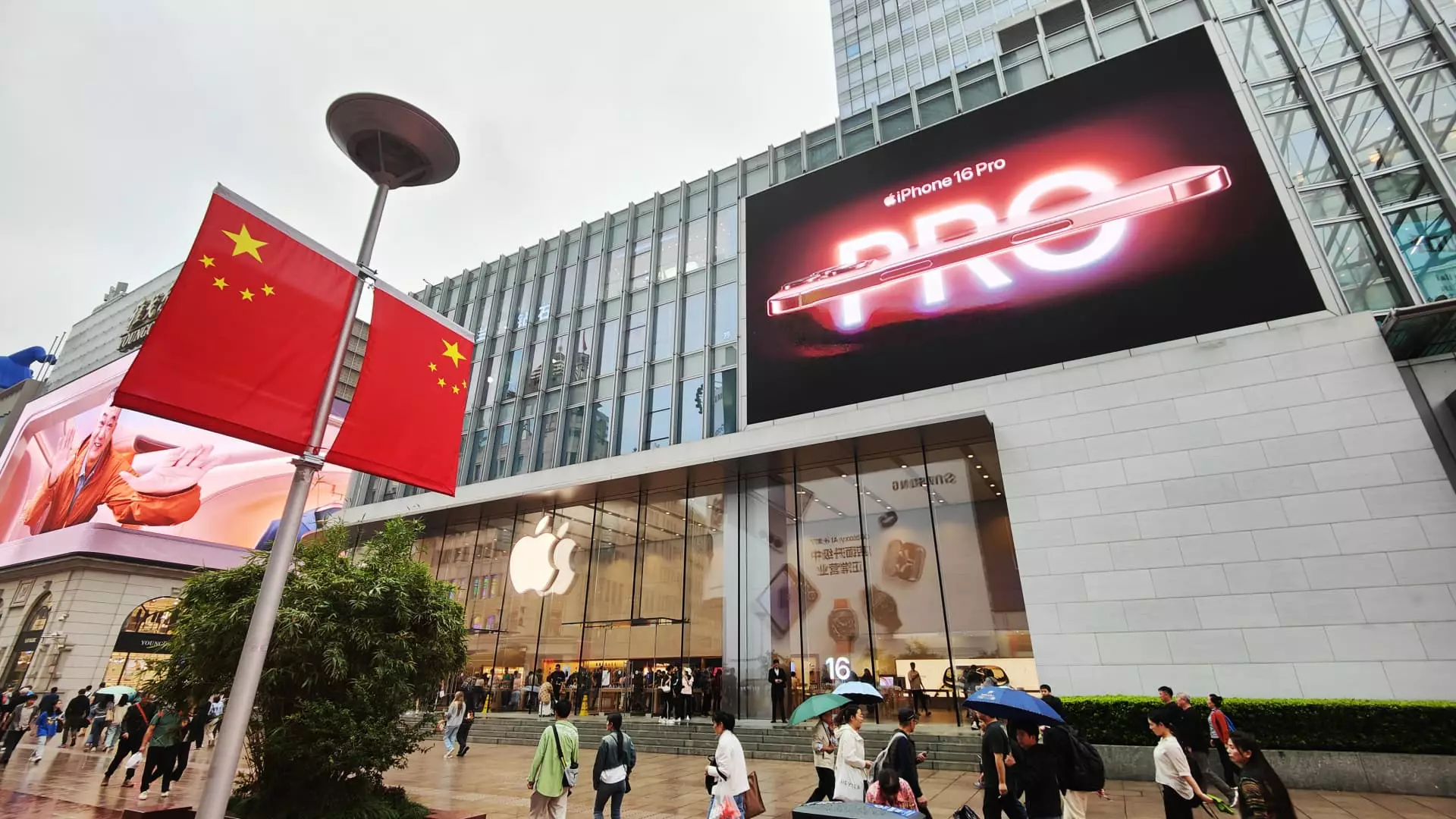Recent data from the China Academy of Information and Communications Technology (CAICT) indicates a stark decline in foreign mobile phone sales in China during November, with shipments plummeting to just 3.04 million units. This represents a staggering 47.4% decrease from the previous month and a drop of 51% compared to the same period last year. These statistics shine a spotlight on the struggles foreign brands, particularly Apple, face in an increasingly competitive landscape dominated by domestic players. The lack of specific brand breakdowns in the reports makes it challenging to ascertain the exact impact on individual companies, but it’s evident that foreign brands are losing ground in the world’s largest smartphone market.
As the leading international smartphone vendor in China, Apple’s situation is particularly precarious. The company has historically enjoyed a loyal customer base, but rising competition from domestic manufacturers poses significant challenges. Brands like Huawei, which experienced setbacks due to U.S. sanctions, have made a notable comeback, launching high-end devices that resonate with local consumers. This resurgence has evidently caught Apple off guard, as Huawei’s growth trajectory in late 2023 eclipsed Apple’s own performance, highlighting the former’s re-establishment in the technology arena.
The battlefield for smartphone supremacy in China is increasingly crowded. Domestic manufacturers are not only enhancing their hardware but are also emphasizing innovative features like artificial intelligence (AI) capabilities that resonate well with a tech-savvy audience. These competitors have seized the opportunity to spotlight their AI offerings, which are available now, while Apple’s highly anticipated Apple Intelligence software remains inaccessible in the country due to regulatory constraints. This situation places Apple at a distinct disadvantage as it attempts to attract customers with outdated features while rivals showcase their technological advancements.
In response to the pressing challenges at hand, Apple is pulling out all the stops to rejuvenate interest in its offerings, particularly the newly launched iPhone 16 series. Tim Cook, Apple’s CEO, has actively undertaken multiple trips to China to forge meaningful partnerships with local firms, demonstrating the company’s recognition of China as a critical market that requires tailored strategies. The impending discounts for the iPhone 16 coinciding with the Chinese New Year further illustrate Apple’s commitment to reclaiming its foothold amid an evolving marketplace.
The dwindling sales of foreign phone brands in China signal more than just a statistical anomaly; they underline a significant shift in consumer preferences and market dynamics. As Huawei and other domestic competitors ramp up their technology and market offerings, Apple must pivot effectively to stay relevant. The balancing act between adhering to regulations while simultaneously innovating could be key to determining the future success of foreign brands in this vital market. Ultimately, the next steps taken by Apple and its rivals will shape the landscape of the smartphone industry in China for years to come.

